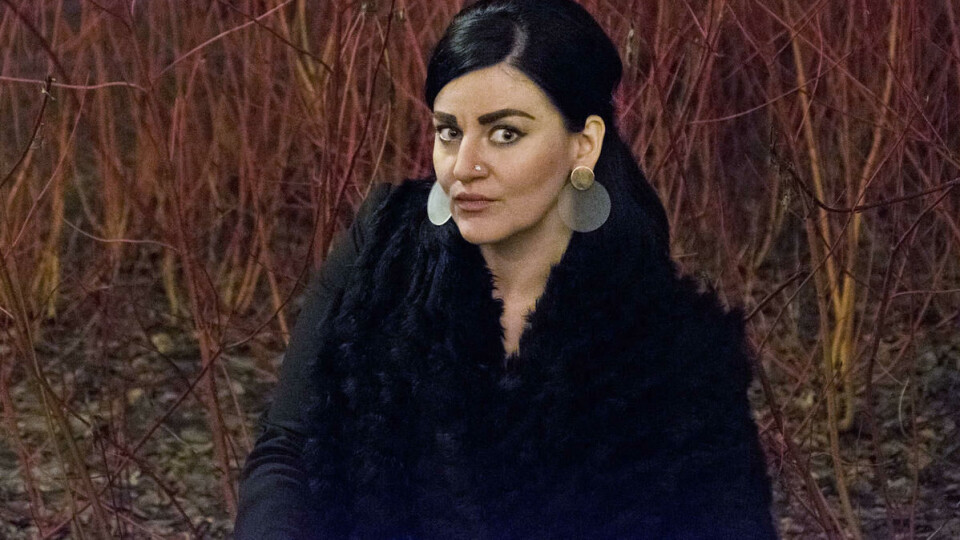
Bill Gates and biker gangs were anthropologist's focus
What do Bill Gates and bikers have in common? Both do good, in order to do some bad, says researcher Tereza Kuldova.
Most of the parties are completely legal, with kids and uncover police attending. Everyone knows they’re there!»
«Eight men now own half of the world’s resources. Everyone knows this. But people like Bill Gates, because he gives money to charity.»
Social anthropologist Tereza Kuldova speaks extremely fast and extremely prolifically in a mix of Norwegian, German, and English. The UiO researcher has spearheaded what she calls «extreme anthropology.»
In February she was at the Museum of Cultural History, where she was once curator of Indian fashion, to talk about her latest project: comparing the world’s biggest organizations with the underworld’s petty criminals. Like an academic Hunter S. Thompson, she fearlessly delved into the notorious motorcycle society of Austria and asked: what exactly is the difference between a biker gang and a multinational company?
«I compare ‘business as usual’ with ‘business as unusual.’ In the 1970s, biker gangs in the U.S. started raising money and gathering toy donations for sick children. They did this to legitimize their criminal activities, a little bit in the same way as elites do.» Kuldova believes elites have a lot to cover up, including shady business dealings, collaboration with criminals in developing countries, and monopolies.
Norway in a nutshell?
Oslo, 2013: Billionaire Christian Ringnes wanted to give Norway’s capital city a sculpture park, worth several million kroner. The protestors didn’t take long to arrive – who was this billionaire to decide how Ekeberg forest would be used?
Kuldova says the culture of philanthropy is not very widespread in Norway. She believes that’s a good thing.
«Philanthropy is a controversial phenomenon. When the state is strong, there isn’t much need for it, but if the state is weak, it’s more popular. In Norway philanthropy doesn’t work,» explained Kuldova. «Local biker gangs have tried to do charity work, but because the state is so strong, it doesn’t have the same effect. Here it just looks like a PR-strategy, which to a certain extent it is.»
Researchers are generally skeptical when it comes to philanthropy. When asked if Bill Gates could just be a nice guy, Kuldova was doubtful.
«Philanthropy should go to charitable organizations. But [Bill] Gates is giving money to MasterCard to build up the bank system in Kenya. He gets tax deductions for that. Who is it helping?»
Kuldova believes money that goes to charity would be better served by going to the state, which would use it more effectively than organizations.
«Instead of paying two percent of your income to charity, you should rather pay 30 percent in taxes to the state. Philanthropy will never fight the conditions that created a need for philanthropy in the first place,» she said.
Extreme anthropology
Even though she does not have a license herself, Kuldova has closely followed the so-called «outlaw» clubs – motorcycle clubs regarded as criminal – through Europe. She doesn’t deny it was adrenaline-filled, but says she had no reason to be afraid.
«The clubs are very inclusive. Everyone is welcome, and you won’t be judged if, for example, you look different or have a different skin color. Most of the parties are completely legal, with kids and uncover police attending. Everyone knows they’re there,» she said, and laughed.
«Have you ever witnessed anything criminal?» this reporter asked.
«No, I don’t think they would have invited me. Those kinds of things happen behind closed doors.»
Home away from home
The actual motorcycles are important, but are perhaps not the most important recruitment aspect for clubs, Kuldova believes. A more significant criterion for the men who join is a feeling of not being recognized in society.
«Biker gangs have their own status system. The recruits are looking for an alternative society that can offer community, protection, and psychological and material support.»
Kuldova says this is similar to other socially deviant groups, such as neo-Nazis. At parties she met many remorseful bikers with neo-Nazi tattoos from their youth.
«It’s often belonging which is driving them. You don’t often find neo-Nazis older than 35,» Kuldova said.
«They drop out or move on to biker gangs, for example.» She added it is frequently based on coincidences, and many of them could have just as easily ended up at Blindern.
Similar to the mafia, biker gang networks are based on trust. Members are treated terribly for the first few years, until they slowly but surely build up respect, a recognition that worth something around the world. «You become a part of something bigger than yourself,» Kuldova explained. «Biker gangs are transnational, and offer a huge network. If you get sick when traveling for example, there’s a good chance someone will come through for you, even if you don’t know them personally.»






























